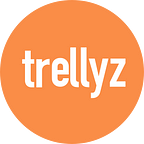If a tree falls…
If it were you, and it very well could be you this year or next, where would you turn if you needed help? Most of us (especially those reading this) are reasonably secure in the thought that we can manage through whatever disaster besets us. Or at least until about a year ago… Pre-COVID. Who would have thought that many of us in the West — millions — would be faced with the very same type of disasters that migrants and refugees faced in their home countries? Disaster was not totally unknown to us, especially natural disasters. Some places, like California, are prone to fires. Other places are prone to earthquakes and floods. Most, not all, middle class people have safety nets for these disasters — insurance policies and government intervention.
The last 12 months have been different. No matter how secure you thought you were, you now might be one of the millions who have lost your job; you may be facing eviction; you may have lost close family members or had COVID, or are even now suffering from Long COVID. We all now know a little more about what it has been like for those coming to our countries from the Global South (lower income countries), those fleeing conflict, disaster, persecution, economic uncertainty and more. The 26,000 people from Paradise, California who lost their homes in the Camp Fire in November 2018 know what is is like to be a refugee or migrant. COVID has been like that for many of us in the US and Europe. And we were not ready for it. Most of us have no idea where to look for help now that we need it. It was, until COVID, inconceivable that we might face this kind of cataclysmic event.
Isn’t government supposed to help us? Aren’t there nonprofits and NGOs set up to help us when these disasters happen? Yes. But they have all been hit by similar problems to us. Governments have less tax revenue so fewer resources and nonprofits rely on donations, and those have been down because of people like us earning less or nothing, and corporations struggling in the wake of COVID.
If Silicon Valley can’t get it right…
Last summer we did research in Silicon Valley and the 9 San Francisco Bay Area Counties to see who was available to help. We looked at resources available to any of us, to any resident in those counties — 7 million people. It was not pretty. Only 35% of websites had info about availability during COVID, and only 21% had a hotline or phone number visible on the home page in the 75 government and nonprofit social services websites we surveyed!
So what about those who are even more vulnerable than us (and remember there is no longer “us” and “them” — we are all pretty vulnerable about now)? Like the migrants who are traveling up the West African migration route into Europe? Or those who are leaving Syria, or Turkey (on their journey from somewhere else to something better)? Migrants and aspiring refugees (asylum seekers) can’t rely on the social safety nets many of us have. And even if they could, they wouldn’t know where or what they were. They have to count on being directed to resources that are meant for them.
New UK research shows lack of refugee help during COVID
This week we just completed research in the UK about availability of migrant and refugee aid organizations. And more than one-third –36.75%– of are now are shut or not responding to phone calls during COVID. And this is in a year when all of us, especially the most vulnerable need help.
- 3% are permanently closed
- 8.75% are closed for COVID
- 25% are not answering their phones (after 3 or 4 calls in a two week period)
Government is failing. Nonprofits are failing. We are failing.
Who are you gonna call?
I don’t have all of the answers but I do know that if I needed help, (and believe me I have) and don’t know where to turn, I google and then go to websites and look for phone numbers and then call. Service providers have an obligation to help when it’s needed most. If their budgets have been slashed they can move from face-to-face to virtual — but offering a phone number is a minimum requirement. And social service websites simply must have a message about whether they are open or closed and what services are being offered.
Even when we are somewhat broken by what is going on now, we can always offer our hand to those in greater need. Our RefAid app is serving migrants and refugees in 24 countries (soon to grow by an additional 20 in West Africa and other countries). We are always looking for service providers to include their services in our free app. Our LifeSpots app is for everyone, all of us — the first service provider network to include govern and nonprofit services — now available in California, Washington State and growing rapidly throughout the US>
